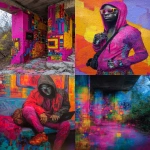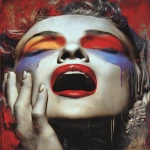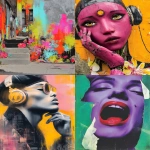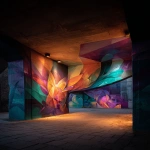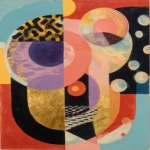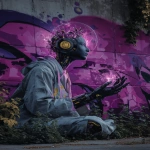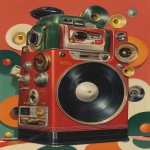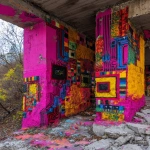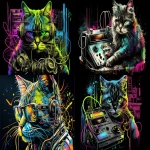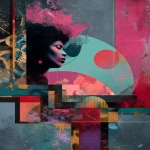Explore the Best AI Image Gallery

Beyond the Canvas: How Blockchain is Reshaping the Creative Industry
The creative landscape is undergoing a seismic shift, driven by the disruptive power of blockchain technology. This decentralized and transparent ledger system, originally designed for cryptocurrencies, is now finding fertile ground in the realm of art, music, design, and publishing. Blockchains inherent ability to verify ownership, track provenance, and facilitate secure transactions is empowering creators like never before, opening up new avenues for monetization, collaboration, and audience engagement.
Revolutionizing Creative Ownership
One of the most profound impacts of blockchain on the creative industry is its potential to revolutionize ownership. Traditionally, artists often struggle with establishing clear ownership rights, particularly in the digital realm where content can be easily copied and distributed. Blockchain provides an immutable record of creation and ownership, enabling creators to register their works on a public ledger. This transparency not only safeguards against plagiarism but also empowers creators to retain control over their intellectual property.
NFTs: A New Era for Digital Art
Non-fungible tokens (NFTs) have emerged as a game-changer in the digital art space. These unique, indivisible digital assets, secured on blockchain, represent ownership of specific digital artworks, collectibles, or even virtual experiences. NFTs have democratized access to art collecting, allowing anyone with an internet connection to acquire and trade rare digital pieces. This has led to a surge in the value of digital art, with some NFT creations fetching astronomical sums at auction.
Smart Contracts: Automating Creative Processes
Smart contracts, self-executing agreements encoded on blockchain, are poised to streamline and automate various aspects of the creative industry. For example, smart contracts can be used to automatically distribute royalties to artists when their work is sold or licensed. They can also facilitate transparent and secure collaboration among creators, ensuring fair compensation and timely delivery of projects.
Beyond Art: Blockchains Wider Impact
The applications of blockchain extend far beyond the realm of art. In music, blockchain can be used to track song ownership, distribute royalties efficiently, and combat piracy. In publishing, it can ensure authors receive proper credit and compensation for their work. Even in fashion, blockchain is being explored to create transparent supply chains and authenticate luxury goods.
Ethical Considerations: Navigating the Complexities
While blockchain offers immense potential, its integration into the creative industry also raises ethical considerations. * **Accessibility and Inclusivity:** Blockchain technology requires technical expertise and access to infrastructure, which can create barriers for some creators, particularly those from underrepresented communities. It is crucial to ensure that blockchain initiatives promote inclusivity and accessibility for all.* **Data Privacy and Security:** Blockchains immutability can pose challenges in managing personal data and ensuring privacy. Robust safeguards must be implemented to protect sensitive information while leveraging the benefits of blockchain.
Future Trends: Shaping the Creative Landscape
The future of blockchain in the creative industry is brimming with possibilities. We can expect to see:* **Greater Interoperability:** Blockchain platforms will become more interconnected, enabling seamless collaboration and data sharing across different ecosystems.* **Decentralized Autonomous Organizations (DAOs):** DAOs, powered by blockchain, will play a growing role in managing creative projects, fostering community ownership, and distributing profits fairly among contributors.* **Immersive Experiences:** Blockchain will be integrated into immersive technologies like virtual reality and augmented reality, creating new forms of interactive art and engaging experiences.
Blockchain technology is poised to revolutionize the way we create, consume, and value creative works. By embracing its potential while navigating its ethical complexities, we can unlock a future where creators have greater control, transparency, and opportunities for success.
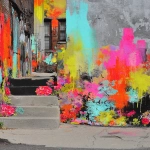
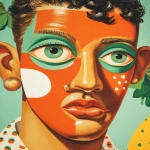
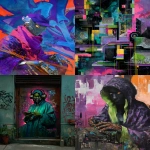
](https://images.ai-img.art/thumbnails/150/33d5e6d1da2b8ec2c4b8eab20d051c27c26d7a4991a77faf06fd03e96617fb1e.webp)
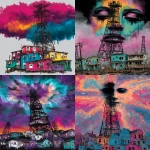
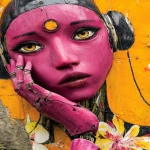
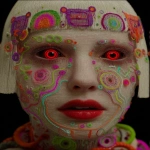
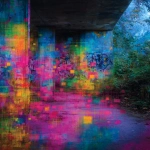
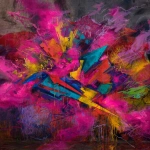
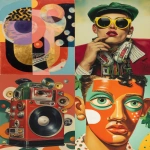

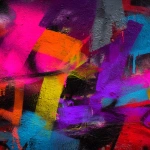
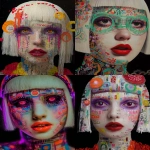
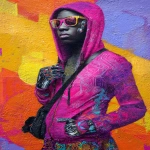
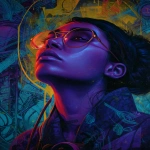



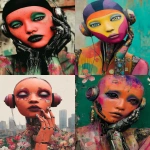




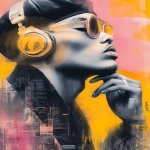
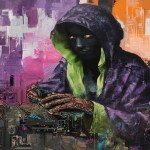

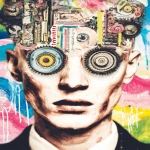
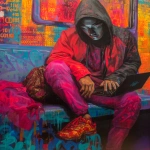
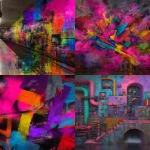
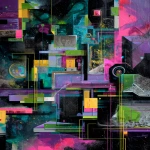
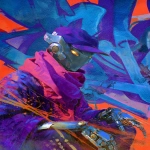

](https://images.ai-img.art/thumbnails/150/1aa8215ea9a4f6970e81a10bdb4feb3b08d5e1a202c3c7ed2c9380f2f63d5a74.webp)
](https://images.ai-img.art/thumbnails/150/664a559b73eaff070d6f7fc7b3b151718aef9fa3a3f12f90b3c9092ceaa3cb56.webp)


